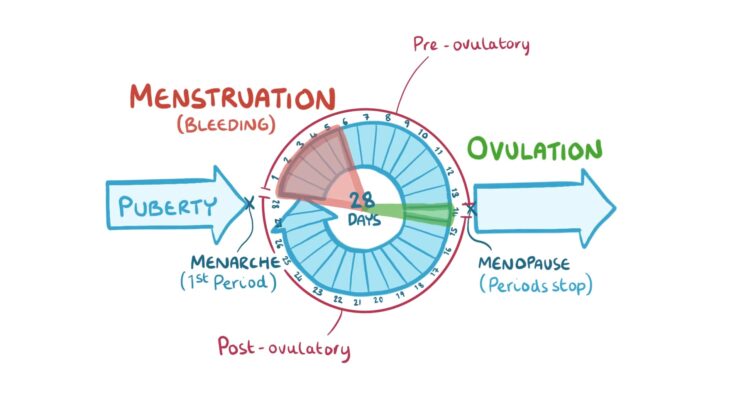For those of you who are planning to get pregnant, there are a few simple steps you can take to optimize the pregnancy you are planning. Having a baby is a life-changing decision, but the joy and love of children are tremendous.
As with every parent, you would want the best for your child and to make sure that everything goes smoothly from the very start of the pregnancy, including preconception. There are certain measures within our control that can enhance this. Let’s delve into the first three sections of this comprehensive guide.
Screening for Preventable Diseases
Screening for preventable diseases such as rubella, varicella, and hepatitis B is a simple process but very beneficial prior to conception. Those who are found to be susceptible or non-immune to the above can be offered proven vaccinations.
- Rubella and Varicella: These are viral infections that can have severe consequences if contracted during pregnancy. It’s crucial to ensure immunity before trying to conceive. However, please note that women are advised not to become pregnant for at least 1 month following rubella or varicella vaccination.
- Hepatitis B: This is a liver infection that can be passed from mother to baby during childbirth. Ensuring immunity or getting vaccinated can prevent this transmission.
Folic Acid Supplementation
Supplemental folic acid is of great benefit when taken at least 2 months prior to conception and up to 12 weeks gestation. It plays a pivotal role in the early development of the baby’s neural tube.
- Importance of Folic Acid: Folic acid has been proven to reduce the risk of developing neural tube defects in babies. These defects can lead to conditions like spina bifida, where the baby’s spine doesn’t develop properly.
- Recommended Dosage: The general recommended dose of folic acid is 0.4mg per day. However, for women who are currently taking anti-epileptic medication or who have previously had an infant with a neural tube defect, a higher dose of 5mg per day is recommended. This is based on Level 1++ evidence.
Optimizing Other Chronic Medical Conditions
If you have other chronic medical conditions such as diabetes, hypertension, or thyroid disease, optimizing these conditions with the help of your doctor will be beneficial to both mother and baby.
- Early Planning: Early discussion with your doctor, if you are thinking of getting pregnant, will aid in the preparation and implementation of an individualized management plan. This may involve a change of medication or specific interventions to ensure the health of both mother and baby.
- Benefits: Proper management of chronic conditions can reduce the risk of complications during pregnancy and ensure a healthier outcome for both mother and baby. For instance, uncontrolled diabetes can increase the risk of birth defects, while uncontrolled hypertension can lead to preeclampsia.
Cervical Screening
As you prepare your body for the beautiful journey of motherhood, it’s essential to ensure the health of your cervix. Cervical screening is a quick and easy procedure that has proven benefits for cervical health.
Cervical screening, commonly known as a Pap smear, helps in the early detection of precancerous changes in the cervix. Early detection means early intervention, reducing the risk of cervical cancer. It’s crucial for women to be up-to-date with their screenings as per the national cervical screening program guidance. This recommendation applies to all women, not just those thinking about starting a family.
Lifestyle Modifications

Beyond medical screenings and supplements, your lifestyle plays a significant role in your preconception journey. Adopting a healthy lifestyle can boost fertility and increase the chances of a healthy pregnancy.
Diet and nutrition are paramount. A balanced diet rich in fruits, vegetables, whole grains, and lean proteins can help ensure you and your future baby get all the essential nutrients. Reducing caffeine intake and eliminating processed foods can also be beneficial.
Physical activity is another crucial aspect. Regular exercise, be it walking, yoga, or any other form of activity, can help maintain a healthy weight, reduce stress, and improve overall well-being, all of which can positively impact fertility.
Mental and Emotional Well-being
Preconception preparation isn’t just about physical health; mental and emotional well-being are equally important. Stress, anxiety, and other emotional factors can influence fertility and the overall pregnancy experience.
It’s essential to find ways to manage stress effectively. This could be through meditation, deep breathing exercises, or even seeking support from a therapist or counselor. Surrounding yourself with a supportive community, be it friends, family, or support groups, can also make a significant difference.
Remember, every individual’s journey to conception is unique. While some may conceive quickly, others might take longer. It’s essential to stay positive, patient, and proactive in your approach. Seek guidance when needed and trust the process.
Your Menstrual Cycle

One of the most empowering steps a woman can take when preparing for conception is understanding her menstrual cycle. Knowing when you ovulate can significantly increase your chances of conception.
Every woman’s cycle is unique, typically ranging from 21 to 35 days. Ovulation, the release of an egg from the ovary, usually occurs in the middle of the cycle. This is the prime time for conception. Tracking your cycle, either through apps, basal body temperature, or ovulation predictor kits, can help pinpoint these fertile days.
Environmental and Occupational Hazards
While it’s common to focus on personal health, it’s equally important to be aware of environmental and occupational hazards that might affect fertility and pregnancy.
Exposure to certain chemicals, radiation, or even prolonged periods of high heat can affect both male and female fertility. If you or your partner work in environments that might pose such risks, it’s essential to discuss protective measures with your employer and healthcare provider. Simple steps like wearing protective gear or even considering a temporary job role change can make a difference.
Medications and Over-the-Counter Drugs

Medications, both prescription and over-the-counter, can influence fertility and the health of a developing fetus.
Before trying to conceive, review all the medications you’re currently taking with your healthcare provider. Some drugs might need to be adjusted, switched, or even stopped to ensure a safe and healthy pregnancy. This includes not just prescription medications but also over-the-counter drugs, supplements, and herbal remedies.
Final Words
Embarking on the journey of motherhood is a profound and transformative experience. Every decision you make, every change you embrace, and every step you take during the preconception phase lays the foundation for a healthy and joyful pregnancy.
Remember, preparation is not just about the physical aspects but also the emotional, financial, and environmental facets of your life.
By following this comprehensive guide, you’re not only prioritizing your well-being but also ensuring a nurturing environment for your future child. Here’s to a beautiful journey ahead, filled with love, hope, and the promise of new beginnings.
Related Posts:
- A Quick Breakdown on How HIV Can Be Transmitted:…
- How To Solve Discord Pop Out Not Working 2024…
- Ultimate Guide to Chlamydia: Diagnosis and Treatment Options
- Osteoarthritis of the Knee: A Comprehensive Guide
- Low Triglycerides Diet: A Comprehensive Guide
- Contraception After Delivery: A Comprehensive Guide












